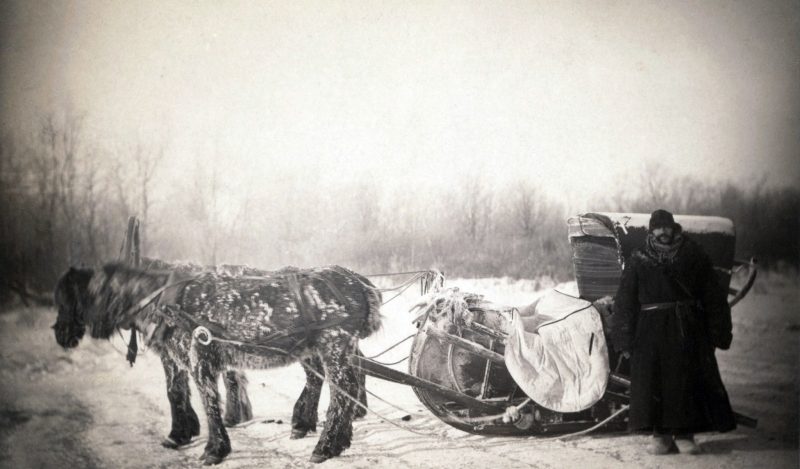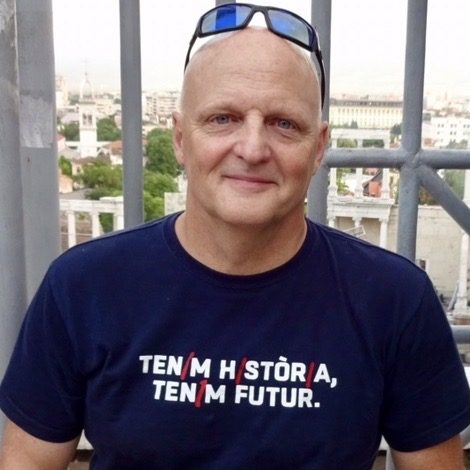In another life that ended only a couple of years ago, but that often feels long and far away, I spent a lot of time and energy studying the lives of Spanish Civil War (1936-39) exiles in the Americas. I did so by searching through archives in Spain, Uruguay, Argentina, Chile, Cuba, and Brazil, and doing interviews with surviving exiles and their offspring.
My first goal was to map the routes these frightened and broken people took across the frozen Pyrenees in the winter of 1939 to concentration camps into a mostly unwelcoming and about-to-be-invaded France and how, if they were able to avoid death from cold and hunger, or fates like conscription into work battalions up on the Maginot Line, they made it on to the Americas.
Who made it out and why? What national and international institutions supported these people who were often quite wrongly portrayed by the establishment press of the time (plus ça change!) as an undifferentiated mass of raging commies?
The second aim was to trace the impacts these exiles had on the social and cultural institutions of the countries that took them in, which, when we take into account their relatively modest numbers, turned out to be more than considerable, especially in places like Mexico.
That’s the official, grant-ready and pretty much true story of my work in this realm. But it’s not the whole one.
One of the great luxuries of being a professor of the humanities—I know this might come as a surprise to some members of the guild—is the way that it puts you in touch with, well, humans, and their always compelling stories.
If you can manage in the course of your research to replace your strictly analytical glasses with empathic ones, you can begin, like the child you once were, to create vivid pictures in your head about what it must have been like to live through more difficult times, and, in this way, gain considerable insight into what achieving success in this imperfect world of ours might really be all about.
When you’re in exile, there are things you read and hear that will never leave you.
Things like watching a seventy-year-old man, sitting across the room from me in an upper-middle class home in Montevideo, break into uncontrollable sobs on as he recounted the story of slowly moving toward the French border in a bus as a six-year-old boy while Francoist planes strafed that vehicle and the many more less fortunate families making the same trip on foot in the February cold of 1939.
Or how after crossing the border his family was separated, with the father being sent to live in a tent on the beach at Argelers, while the mother and the four children were shuffled off to a concentration camp in the mountains whose location was never passed on to the head of the family.
Or having the sister of the sobbing man hand me a copy of the official Francoist decree, produced after a “trial” carried out in absentia in 1943, that banned their father, a doctor, from ever working again in Spain owing to his alleged membership in a masonic lodge.
Or being told of how, after the death of Franco these children of that Republican doctor returned to Barcelona, knocked on the door of the house they had grown up in and that had been given as booty to a regime loyalist, and how that usurper’s offspring promptly slammed the door in their faces when they mentioned who they were, and what the place had meant to them.
When you dig into the history of exile, stories like these and many much worse ones, are nearly limitless.
But thankfully, so are the stories of how many of these same people came out the other side with their lives, families, and dignity intact.
Especially moving for me was what I found when digging through the archives of the Basque, Catalan, and Galician cultural centers in places like Havana, Montevideo, Buenos Aires, and Santiago, Chile.
One of the key goals of the July 1936 Francoist coup that launched the Civil War, was to effectively destroy the literatures, languages, and historical memories of these non-Spanish speaking cultures of the Iberian peninsula. And for the first 25 years of his dictatorship he largely succeeded in this goal.
But overseas, the exiles from these communities were having none of it.
No sooner had they arrived in America than they founded a staggering number of intellectually serious publications in their native tongues. This, while regularly organizing—long before the internet and even easy access to long-distance telephony—transcontinental poetry contests designed to stimulate production of verse in those same languages.
Virtually all of those involved in such efforts were also native speakers of Spanish, meaning that the many talented and well-published people in their ranks could have put themselves in the running for publishing contracts and possible fame in their countries of adoption by simply switching to their “other” native language.
And, of course, some did.
But the majority decided to continue writing in languages that, owing to Franco’s ban on publishing or importing into the country anything not written in Spanish, they knew had effectively no readership outside their very limited circle of exiled friends!
Would any talented writer you know of today do the same? Would you take the time to write a novel in a language you knew virtually no one would ever read?
But, of course, “making it” was not the reason most of these people and activists chose to write in these relatively obscure vernaculars. Rather, they did so to preserve ways of looking at the world they knew to be in grave danger of extinction.
They believed they had a moral responsibility to not only materially refute the Francoist drive to render their cultures invisible, but to generate a legacy that could, should times change for the better, serve as the base for a rebirth, in Spain, of their peoples’ unique traditions, ideals, and esthetics.
Some of these cultural warriors lived to see the day, following Franco’s death, when these languages, cultures, and literatures (including some of their own exile writing) were once again granted institutional standing in Spain. Many, however, did not, having died in exile before the dictator left this world without knowing whether the sacrifices made for their home cultures in foreign lands were meaningful or simply absurd.
When we think about civil wars like the one in Spain we tend quite understandably to concentrate on the progress made or lost by one side or another on the battlefield. This can sometimes obviate the fact that conflicts between members of the same society always begin with ideas and words, or perhaps more accurately, when one side or the other dehumanizes those they see as their rivals for attention and resources to the point where their feelings and ideas are simply no longer worth listening or responding to in any meaningful way.
When things arrive at this conversational dead end, violence becomes nearly inevitable.
While I would never deign to compare the civic frictions now widely apparent in our society with the bloody destruction caused by the Spanish Civil War, it is I think worth recognizing the totalitarian substructure of the comportments I just described in relation to that conflict, and admitting that they are by no means absent in our culture, especially in regard to discussions surrounding the best way to deal with the problem of Covid.
Indeed, it could be argued that the attacks that Covid dissidents have suffered have been worse than those suffered in Spain not, obviously on the paramount level of death and destruction, but in terms of their pure wantonness.
In Spain the mutual lack of respect for the other side’s point of view was evident from the very first years of the unstable Republic (1931-36) that set the stage for the war.
For many Republicans, for example, no one supporting a significant role of the church in public life deserved to be heard. And for many of the side that would rebrand themselves as Nationals during the war, violent armed repression was the perfectly appropriate response, for example, to a strike by ill-paid Asturian coal miners.
There was, however, no such pox-on-both-your houses violence in what resulted in the standoff between the pushers of the establishment narrative and the Covid skeptics.
We skeptics listened to what they were telling us. Indeed, given the carpet-bombing nature of their propaganda, how could we have avoided doing so?
And when we found their reasoning to be lacking, we simply asked to have our concerns as citizens addressed, and that we be given a space to debate questions that had a direct bearing on the preservation of what we saw as core constitutional liberties and the right to bodily sovereignty.
The response we received was unambiguous and overwhelming. They said in effect “No such conversation will take place, and just to make sure it doesn’t we will use every single tool at our disposal to disappear you and your ideas from our public spaces, and whenever possible, from private spaces as well.”
We were thrust—and it is no mere figure of speech when I say it—into exile in our own land, and in many cases, thanks to the pusillanimity of friends and relatives, also in our own homes and communities .
And like the Spanish dictatorship that believed that through summary executions and forced exile it could “cleanse” the body politic of nonconforming ideas once and for all, many of our new commissars truly thought that victory in the fight to “save the country” from our mental and moral impurities was at hand.
Indeed, they are still working overtime to accomplish this goal as we speak.
While this is certainly frightening, it is important to remember that authoritarians like our current crop have an Achilles’ heel to which they are almost invariably blind. They assume that everyone else views the world as hierarchically as they do; that is, as a place where dignity matters little and where the wisest course is always the supposedly practical one of “kissing up and kicking down.”
They literally cannot understand why someone, largely bereft of a readership in that language, would write a novel in Catalan when he had the possibility of gaining a considerable following by simply switching to Spanish.
And they certainly don’t get why someone, especially someone intelligent, would lose a job rather than accede to dishonestly presented, top-down abrogations of their fundamental rights.
And it is within this blind spot that we must work. While they continue to not see us, or at least take us seriously, we must build new institutions that speak to our dignity-centered values and that provide our children and our grandchildren with the orientation they need to live joyful, conscious, and existentially-serious lives.
Published under a Creative Commons Attribution 4.0 International License
For reprints, please set the canonical link back to the original Brownstone Institute Article and Author.



